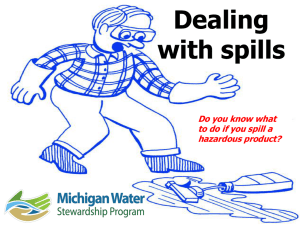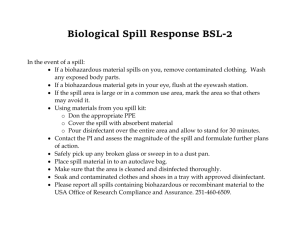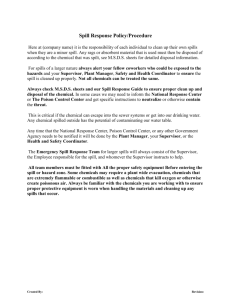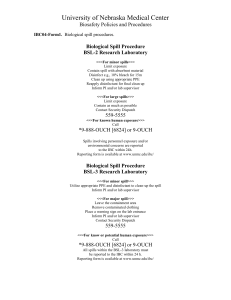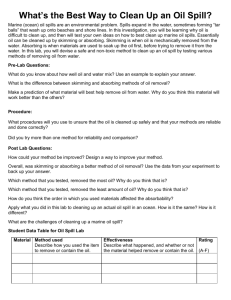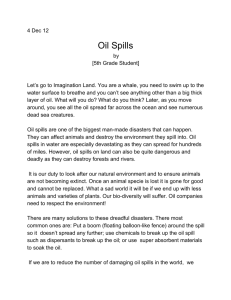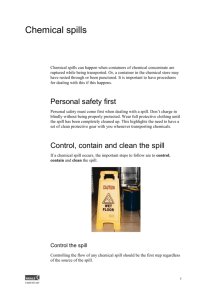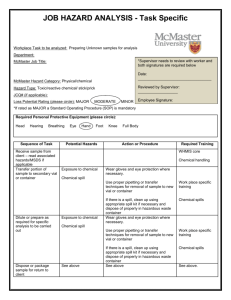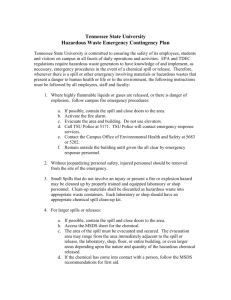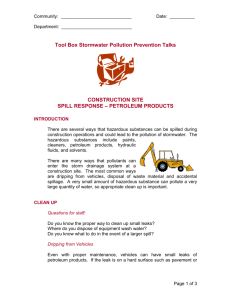Document 5317936
advertisement
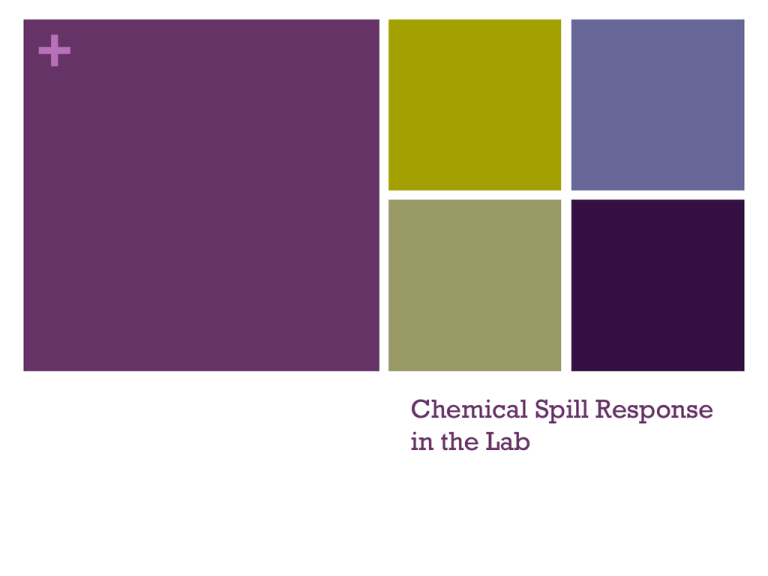
+ Chemical Spill Response in the Lab + Chemical Spills Spills can seriously disrupt laboratory operations. If handled properly, a spill may be nothing more than a nuisance. In most cases, laboratory workers are the most appropriate people to clean up their spills. If handled improperly, a spill can disrupt your activities and the work of your colleagues Evacuation of a room or even the entire building. Or can cause bodily harm or the lost of valuable material. + What to Do When a Spill Occurs? Aware your colleagues and lab director. You and others should move well away from the area when determining the appropriate response. Follow the 3 steps to determine weather a spill is simple or complex: 1. Evaluating of the spill risks (i.e., volatile vapors, water or air reactive, ignition sources, oxidizers, etc.). 2. Evaluating of the quantities (i.e., simple or complex spill). 3. Evaluating the spills potential impact (i.e., toxic vapors after the cleaning, damage of the equipment, etc.). + Recommended Procedures for Cleaning Up Spills First, be sure that you have the right protective equipment that includes: Appropriate eye protection. Protective gloves A lab coat Make sure all the skin surfaces are covered. Wear two set of gloves. Control the spread of the liquid. Make a dike around the outside edges of the spill. Use absorbent materials such as vermiculite, cat litter, or spill pillows. Flammable liquids are best removed through the use of spill pillows. Prevent the spread of dust and vapors Close the lab door and increase ventilation through fume hoods. Spills pillows or similar absorbent materials work the best than cat litter (do not have the dust associated with cat litter) + Finally Neutralize acids and bases, if possible. Neutralization often causes splashes and large amount of heat. Collect and contain the clean up residues. The spill residue should be scooped, swept, or placed into a plastic bucket or other container. Keep clean up materials separate from normal trash. ACS Task Force, Laboratory Waste Management: A Guidebook, Oxford University Press. http://portal.acs.org/
